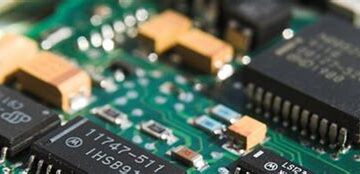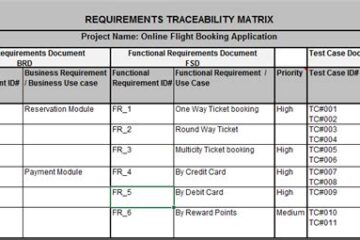What is AS9100D Certification?
AS9100D is a quality management system standard specifically designed for the aerospace industry. It is based on the ISO 9001 standard, with additional requirements tailored to meet the unique needs of the aviation, space, and defense sectors. The standard was developed by the International Aerospace Quality Group (IAQG), a collaborative effort of aerospace industry associations from the Americas, Europe, and Asia.
The AS9100D standard covers various aspects of quality management, including:
- Quality management system requirements
- Management responsibility
- Resource management
- Product realization
- Measurement, analysis, and improvement
By adhering to these requirements, aerospace PCB manufacturers can demonstrate their commitment to quality, safety, and continuous improvement.
The Importance of AS9100D Certification in Aerospace PCB Manufacturing
Aerospace PCB manufacturing is a critical component of the aviation, space, and defense industries. These PCBs are used in a wide range of applications, from avionics and communication systems to satellite technology and military equipment. Given the high stakes involved in these industries, it is essential that aerospace PCBs are manufactured to the highest quality standards.
AS9100D certification provides several benefits to aerospace PCB manufacturers, including:
-
Enhanced Quality Management: By implementing the requirements of AS9100D, PCB manufacturers can improve their quality management systems, leading to more consistent and reliable products.
-
Increased Customer Confidence: Aerospace customers are more likely to choose PCB manufacturers with AS9100D certification, as it demonstrates a commitment to quality and adherence to industry standards.
-
Improved Efficiency: The AS9100D standard emphasizes continuous improvement, which can help PCB manufacturers identify and eliminate inefficiencies in their processes, resulting in reduced costs and increased productivity.
-
Global Recognition: AS9100D is an internationally recognized standard, making it easier for certified PCB manufacturers to compete in the global aerospace market.
-
Reduced Risk: By following the requirements of AS9100D, PCB manufacturers can minimize the risk of product defects, recalls, and liability issues, which can be particularly costly in the aerospace industry.
The Process of Obtaining AS9100D Certification
Obtaining AS9100D certification is a multi-step process that requires a significant investment of time and resources. The process typically involves the following steps:
-
Gap Analysis: The first step is to conduct a gap analysis to identify areas where the manufacturer’s quality management system does not meet the requirements of AS9100D.
-
Implementation: Based on the results of the gap analysis, the manufacturer must implement the necessary changes to their quality management system to ensure compliance with AS9100D.
-
Internal Audit: Once the changes have been implemented, the manufacturer must conduct an internal audit to verify that their quality management system meets the requirements of AS9100D.
-
Certification Audit: The manufacturer must then undergo a certification audit by an accredited third-party certification body. This audit will assess the manufacturer’s compliance with AS9100D and identify any areas for improvement.
-
Certification: If the manufacturer passes the certification audit, they will be issued an AS9100D certificate, which is valid for three years.
-
Surveillance Audits: To maintain their AS9100D certification, manufacturers must undergo annual surveillance audits to ensure ongoing compliance with the standard.

The Role of Training in AS9100D Certification
One of the key requirements of AS9100D is the provision of appropriate training for personnel involved in the manufacture of aerospace PCBs. This training should cover various aspects of quality management, including:
- Quality policy and objectives
- Customer requirements
- Product safety
- Counterfeit parts prevention
- Foreign object debris (FOD) prevention
- Ethical behavior
By providing comprehensive training to their employees, aerospace PCB manufacturers can ensure that everyone involved in the production process understands their role in maintaining product quality and safety.
The Impact of AS9100D on the Aerospace PCB Manufacturing Industry
The widespread adoption of AS9100D certification has had a significant impact on the aerospace PCB manufacturing industry. Some of the key benefits include:
-
Standardization: AS9100D has helped to standardize quality management practices across the industry, making it easier for manufacturers to collaborate and ensuring a consistent level of quality.
-
Improved Supply Chain Management: The standard requires manufacturers to carefully manage their supply chains, ensuring that all suppliers meet the same high standards of quality.
-
Enhanced Traceability: AS9100D mandates strict traceability requirements, allowing manufacturers to quickly identify and address any issues that may arise.
-
Increased Innovation: By emphasizing continuous improvement, AS9100D encourages manufacturers to invest in new technologies and processes that can enhance product quality and efficiency.
Case Studies: Successful Implementation of AS9100D in Aerospace PCB Manufacturing
To better understand the practical implications of AS9100D certification, let’s examine two case studies of aerospace PCB manufacturers who have successfully implemented the standard.
Case Study 1: ABC Electronics
ABC Electronics is a leading manufacturer of high-reliability PCBs for the aerospace industry. In 2018, the company decided to pursue AS9100D certification to enhance its quality management system and better serve its customers.
The certification process took approximately 12 months, during which time ABC Electronics conducted a thorough gap analysis, implemented necessary changes, and provided extensive training to its employees. The company also invested in new equipment and software to improve its manufacturing processes and ensure compliance with AS9100D requirements.
Since obtaining AS9100D certification, ABC Electronics has seen a significant improvement in product quality and customer satisfaction. The company has also experienced a 20% increase in sales, as more aerospace customers seek out certified manufacturers.
Case Study 2: XYZ Technologies
XYZ Technologies is a small but growing aerospace PCB manufacturer that specializes in quick-turn prototyping and low-volume production. In 2019, the company recognized the need to obtain AS9100D certification to remain competitive in the industry.
Despite its limited resources, XYZ Technologies was able to successfully implement AS9100D by focusing on key areas of improvement and leveraging the expertise of external consultants. The company also partnered with local universities to provide training for its employees.
Since obtaining AS9100D certification, XYZ Technologies has seen a 30% increase in revenue and has attracted several new aerospace customers. The company has also been able to streamline its manufacturing processes, resulting in faster turnaround times and improved efficiency.
Frequently Asked Questions (FAQ)
-
What is the difference between AS9100D and ISO 9001?
AS9100D is based on the ISO 9001 standard but includes additional requirements specific to the aerospace industry. These requirements cover areas such as product safety, counterfeit parts prevention, and configuration management. -
How long does it take to obtain AS9100D certification?
The time required to obtain AS9100D certification varies depending on the size and complexity of the organization, as well as the current state of its quality management system. On average, the process can take anywhere from 6 to 18 months. -
Is AS9100D certification mandatory for aerospace PCB manufacturers?
While AS9100D certification is not legally mandatory, it is often required by aerospace customers as a condition of doing business. Many aerospace companies will only work with PCB manufacturers who have obtained AS9100D certification. -
How much does it cost to obtain AS9100D certification?
The cost of obtaining AS9100D certification varies depending on factors such as the size of the organization, the complexity of its operations, and the certification body chosen. Costs can range from a few thousand dollars to tens of thousands of dollars. -
How often do aerospace PCB manufacturers need to renew their AS9100D certification?
AS9100D certificates are valid for three years. To maintain their certification, manufacturers must undergo annual surveillance audits and a recertification audit every three years.
Conclusion
AS9100D certification is a critical component of quality management in the aerospace PCB manufacturing industry. By adhering to the requirements of this standard, manufacturers can improve product quality, increase customer confidence, and enhance their competitiveness in the global aerospace market.
While obtaining AS9100D certification requires a significant investment of time and resources, the benefits far outweigh the costs. As the aerospace industry continues to evolve and grow, PCB manufacturers who prioritize quality and continuous improvement will be well-positioned for success.
By understanding the significance of AS9100D certification and following the examples set by successful manufacturers, aerospace PCB companies can navigate the certification process and reap the rewards of a robust quality management system.
| Aspect | Description |
|---|---|
| Quality Management | AS9100D sets requirements for quality management systems in the aerospace industry, ensuring consistent and reliable products. |
| Customer Confidence | Aerospace customers are more likely to choose PCB manufacturers with AS9100D certification, as it demonstrates a commitment to quality. |
| Efficiency | The standard emphasizes continuous improvement, helping manufacturers identify and eliminate inefficiencies in their processes. |
| Global Recognition | AS9100D is an internationally recognized standard, making it easier for certified manufacturers to compete in the global aerospace market. |
| Risk Reduction | By following AS9100D requirements, manufacturers can minimize the risk of product defects, recalls, and liability issues. |
In summary, AS9100D certification is a vital aspect of aerospace PCB manufacturing, providing a framework for quality management, continuous improvement, and customer satisfaction. As the industry continues to evolve, manufacturers who embrace this standard will be well-equipped to meet the challenges and opportunities of the future.



0 Comments